My Life Inside a Remote Chinese Bitcoin Mine
Eric Mu, HaoBTC's chief marketing officer, speaks about life at the company's bitcoin mine in the Tibetan mountains.
:format(jpg)/cloudfront-us-east-1.images.arcpublishing.com/coindesk/CF7RJVX5PFGPRLV2ATR4XUZZOQ.jpg)
Eric Mu is chief marketing officer at HaoBTC, a bitcoin wallet service. Here he speaks about life at the company's bitcoin mine in the Tibetan mountains.
Living three months in a place where you have to travel 10km to reach the closest store might be inconceivable for a modern city dweller. For me however, being face-to-face with nature, plus the chance to witness some sort of modern alchemy, holds irresistible appeal.
When the chance came, I didn’t hesitate. A four-hour flight and eight-hour drive later, long after I lost count of the tunnels and bridges I passed, I arrived in HaoBTC’s multi-petahash bitcoin farm, nestled in the mountains.
The view wouldn't look out of place in a James Bond movie. The only link to the outside world is a road 150 meters away. When a mild earthquake struck the region last year, this link was severed and the workers of the nearby power station ate potatoes for weeks before deliverance arrived.
The native population is Tibetan, and Yi villagers live in relatively primitive conditions by the prevailing standard. When the government offered millions of yuan each to evict a nearby village to build a dam, the story goes that the villagers, who probably had no notion of a number that large, refused categorically.
But money is coming, in a way many wouldn’t expect.
The mine
People have been puzzled by the fast growth of bitcoin mining in China. However, one big reason it has ramped up so dramatically is the buildout of hydropower in the west of the country.
The first petahash mining farms were built in Shanxi and Inner Mongolia where coal was cheap and plentiful, but even cheap coal can’t compete with free water.
Now, the farms are migrating en masse towards the west. Our local power station, with a capacity of 25,000 kW, started generating power in 2013, but when HaoBTC's CEO Wu Gang came across it last year, the company was having difficulty paying its employees.
It couldn't obtain the quota enabling them sell power to national grid, which prefers the state-owned power stations over those that are privately-owned. Also, the county-level grid could only consume a small percentage of the power the station generated.
When Wu Gang appeared on the scene with a wacky idea to mine bitcoin using hydropower, people were initially skeptical. However, once they overcame this initial bout of confusion it was clear a win-win arrangement could be formed.
Prior to the discovery of the new power supply, Wu Gang already owned mining operations in two locations, producing 7 PH/s. Once preparation at the local hydropower station was completed, Wu Gang’s miners quickly relocated to take advantage of the cheap power.
Two buildings have now been constructed to house the miners and two more are currently underway.
The farm operates over 10,000 Antminer S3 units, which, alongside the huge ventilation fans, generate a drone that is more than a little annoying. Not what I would call deafening, but you have to be loud when you talk to someone even close to you – an ideal environment to teach you to be economical with words.
As for the temperature, it is often around 35 degrees Celsius, but it doesn't feel that hot because of the wind.
The employees
Of the seven people employed at the farm, most are in their early twenties and have been in the business for one to two years.
The 6,000 yuan ($967) monthly salary might not be much for a white collar employee in Beijing, but for the village kids who have no advanced degree or special professional skills, this is good money.
By comparison, a 40-year-old employee at the local hydropower station told me he got paid slightly more than 3,000 ($484) yuan per month.
Money is certainly a big factor in making life in an isolated environment more bearable, especially when 1,500 yuan extra is added for their sacrifice of weekends.
Once the two remaining buildings have been constructed, the mine workers will be able to have one month of vacation for every two months of work, though some might miss the 1,500 yuan subsidy.
All the staff in the company’s Beijing office, most of whom are programmers, get paid in BTC, but workers here still prefer fiat – the idea of a bitcoin salary is easier to pitch to programmers.
The day-to-day
My first week working at the farm involved more menial labor than I expected. I consider myself reasonably fit, yet after moving hundreds of miners off the truck and onto the shelves, I was depressed by my sore arms the next day. By contrast, my colleagues were in good spirits and maintained their high efficiency.
My coworkers are from Hunan and Sichuan and their accents make communication slightly hard – I still have trouble understanding them when they talk among themselves, but they always make an effort to speak in mandarin when speaking to me.
After various conversations at the facility, I soon realized they are knowledgeable about bitcoin. However, not so much about the latest news or theoretical debate, but the legendary figures who made their names and fortunes by investing early.
Wu Gang is one such legend and, needless to say, their hero. This is especially true for those from his hometown in Hunan.
Routine at the mine is simple. At 07:50am we have a morning meeting. All who fail to attend on time get a small penalty.
Everyone is required to explain what they did the previous day and what they plan to do that day. All problems are reported and solutions are proposed and at the end of each meeting, the manager, Mr Guo, assigns tasks and gives a pep talk.
The staff then splits off into two teams, each of which has a leader who has more responsibility and a slightly bigger paycheque.
One such employee, Mr Guo, is a mild, soft-spoken man from Hunan. Before being involved in bitcoin, he ran a small camera repair shop in Changsha, the capital city of Hunan province.
One day, he was contacted by his old schoolmate Wu Gang, who he hadn’t seen for years. Guo was asked if he was interested in managing his bitcoin mine. With no prior experience and no idea what bitcoin was, Guo took the challenge. Two and half years on, Guo has managed three farms and become an expert on the cryptocurrency.
Downtime
There aren’t many recreational activities to speak of at the mine. Spare time is whiled away with copious amounts of cigarettes, the occasional beer, TV, smart phones and good old poker games.
Chewing dried betel quid is also common – I was told it works as a form of stimulant and is slightly addictive. I tried it once, it tasted like mint-flavored chewing gum.
While the surroundings are beautiful, there’s not much to do outside the mine. Some coworkers told me they have been here for three months and the farthest they have ventured is a small town some 20km away. Their verdict was: "Absolutely nothing to see. The local Tibetans make sure everything is overpriced."
Bitcoin believers
Bitcoin is famously volatile but that is perhaps one of the reasons we love it – the unpredictability. For someone to invest millions of dollars in a mining farm, you have to have a strong faith in the technology.
Wu made it rule number one that everyone joining this company must be a believer in bitcoin. But it is also a business, so the farm will probably only last as long as it is profitable.
The electrical rate right now is low and the team’s dedication and expertise adds to our competitiveness. But we are not blind to risk – profitability may become unattainable someday, we may have to sell our equipment to those who can still make profit. Until then, the machines whir on.
See more images of the bitcoin mine on Flickr.
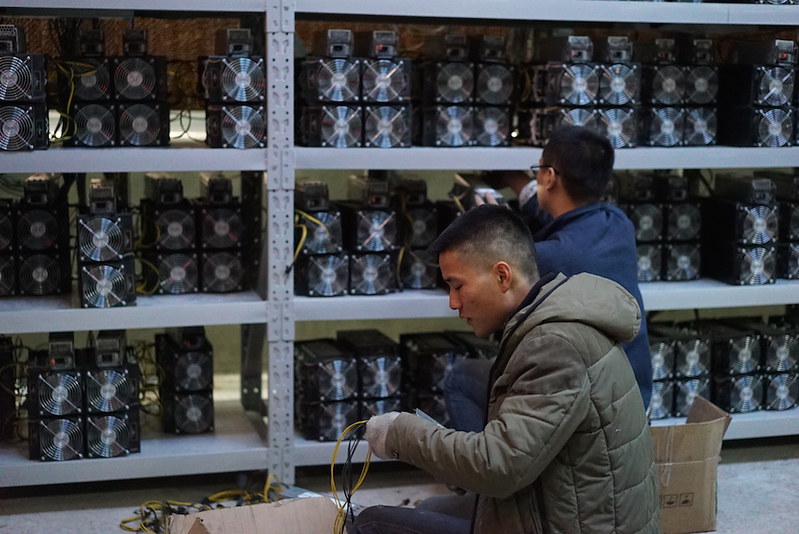
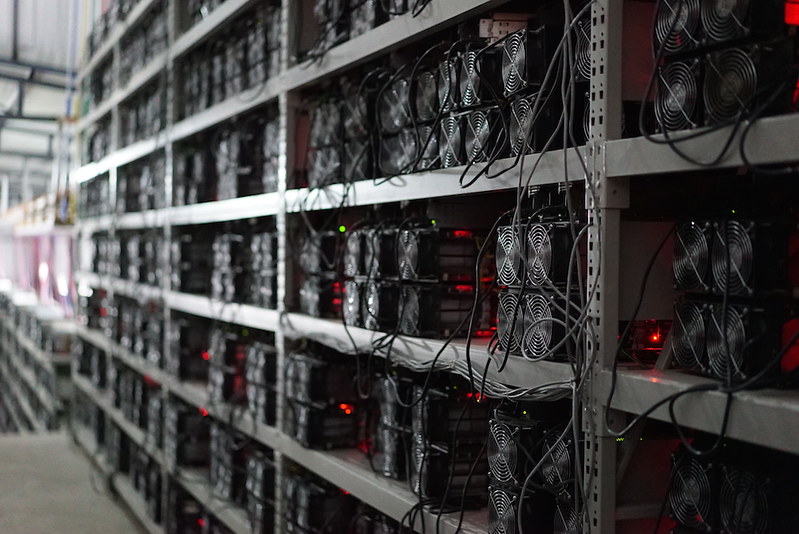
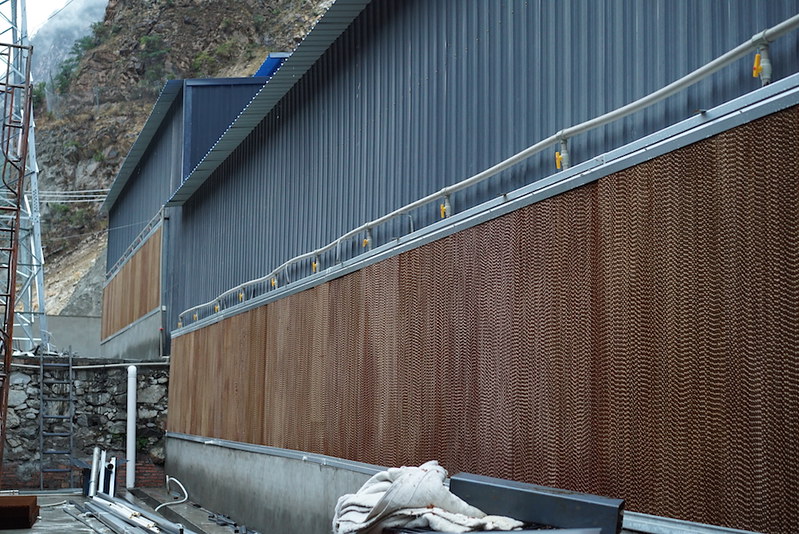
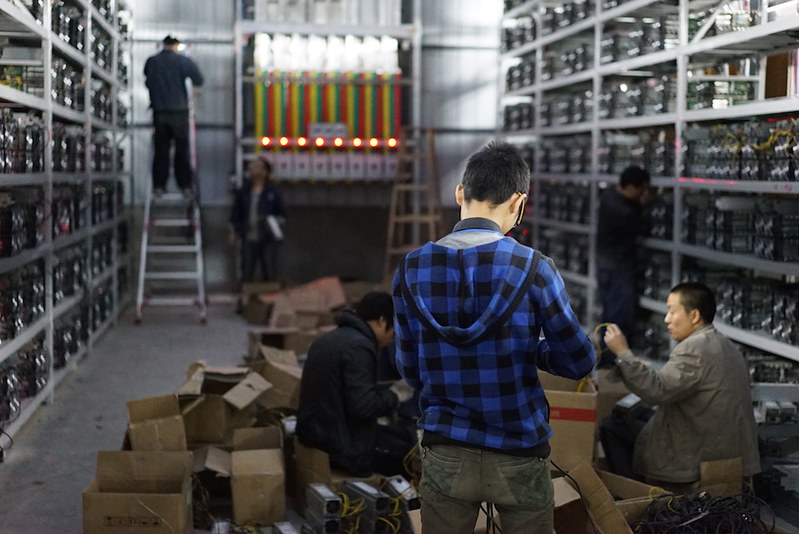
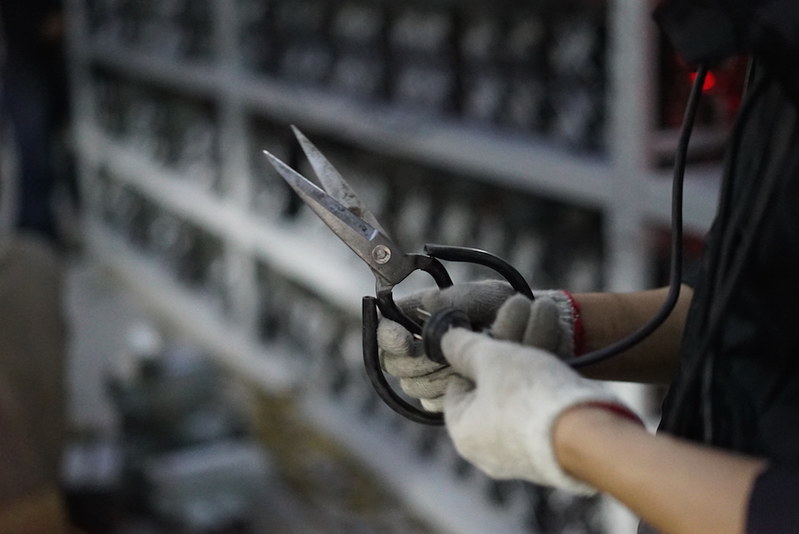
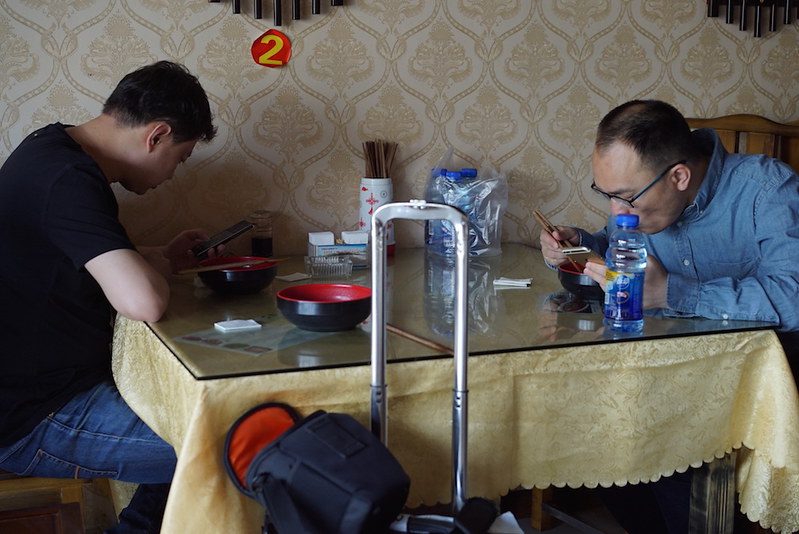
:format(jpg)/downloads.coindesk.com/arc/failsafe/user/1x1.png)